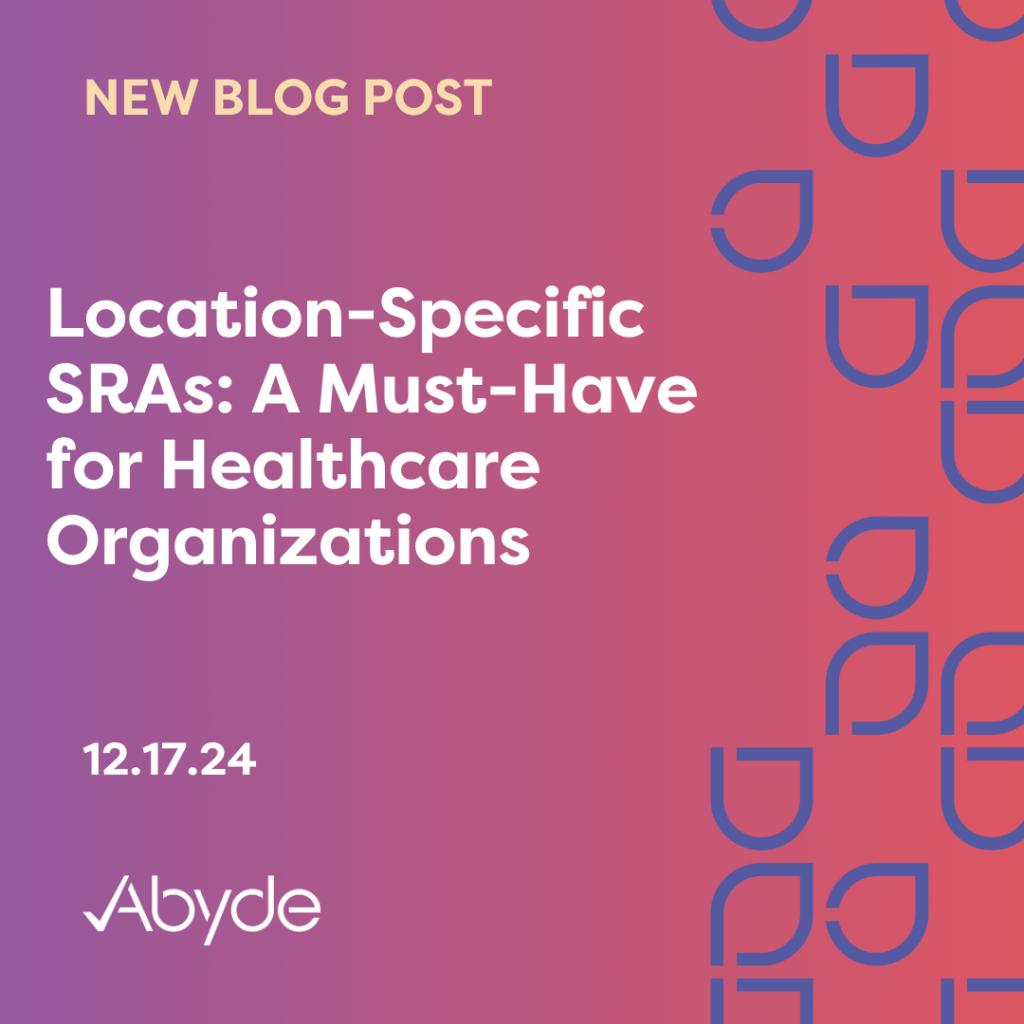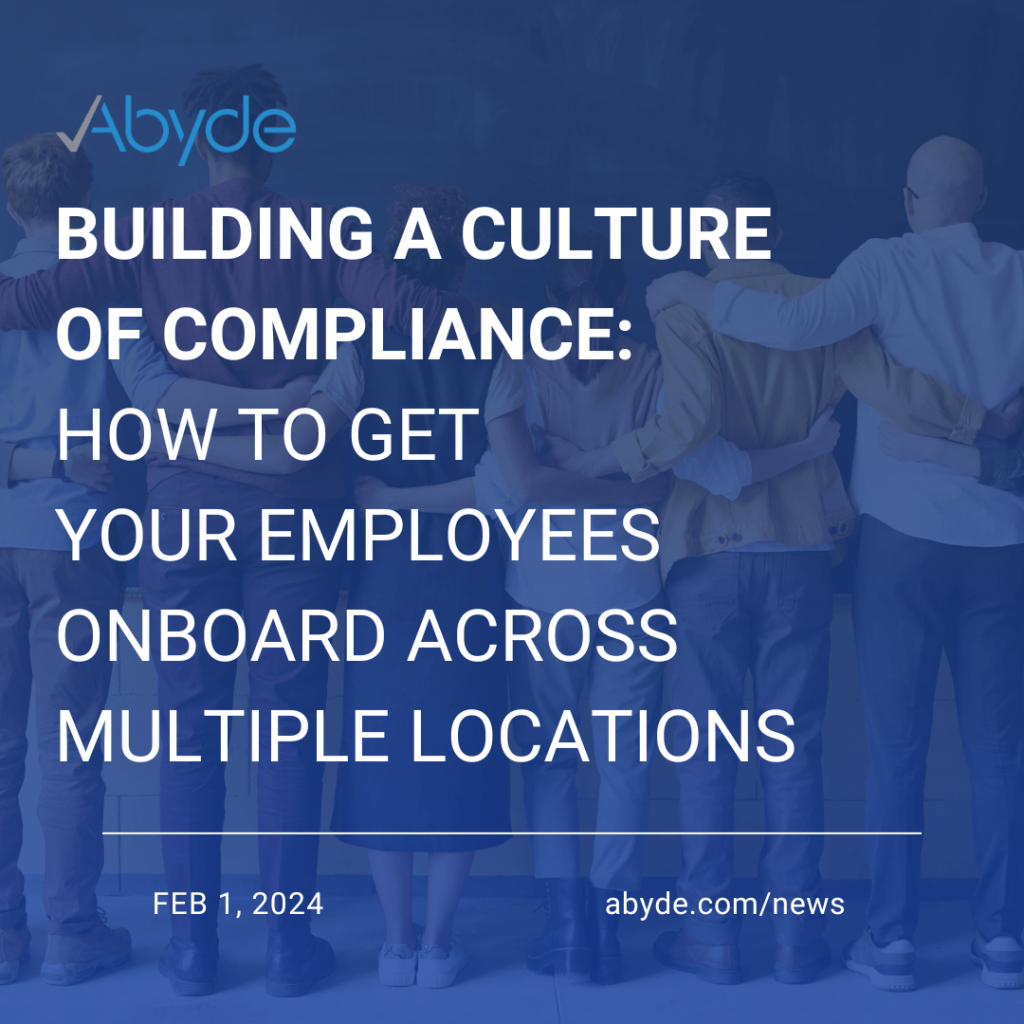December 17, 2024 Keeping all locations in line with HIPAA regulations can be quite a challenge, especially when managing a multi-location practice. It’s a complex puzzle that requires careful attention to detail and a proactive approach to ensure compliance across the board. And we hate to break it to you, but a blanket Security Risk Analysis for your organization isn’t enough. A Security Risk Analysis, or SRA, is a thorough review of your organization’s physical, administrative, and technical safeguards to protect patient data. Even when you’re managing compliance at a single location within a multi-location organization, you are responsible for ensuring an SRA is completed for your location. The Office for Civil Rights (OCR) is serious about this requirement, as indicated by a recent significant fine. A penalty of over $500,000 was recently announced for the Children’s Hospital of Colorado system. While this investigation was sparked by a phishing attack, one of the major findings was missing SRAs for all locations. Completing this SRA is imperative. As the OCR spearheads new enforcement and initiatives, it’s time to get compliant. What is a SRA? The SRA is an in-depth review of everything your practice does to ensure patient data is safe. This means everything from whether your practice utilizes alarms and codes on doors to the servers you use and even how your staff handles patient intake, like how the sign-in sheet process works. The SRA is the first step of a compliant practice because it allows you to review your vulnerabilities and make changes to uphold your commitment to keeping data safe. The SRA is also a requirement for MIPS. Unfortunately, the SRA is a commonly missed requirement for medical practices. In fact, 86% of all practices could not show an adequate SRA in the last round of random HIPAA audits. Completing a sufficient Security Risk Assessment (SRA) is essential for maintaining a compliant medical practice. This process is closely linked to the Office for Civil Rights (OCR) Risk Analysis Initiative, which mandates that medical practices and organizations carry out this required assessment. Recently, the Bryan County Ambulance Authority was fined $90,000 for failing to conduct an SRA, marking the first enforcement action under this new initiative. This incident demonstrates the OCR’s commitment to this initiative and its dedication of resources to ensure compliance. Importance of Location-Specific SRAs When conducting a SRA, assessing every location within your organization is vital. While performing a single SRA for the entire entity might seem easier, compliance is more intricate and requires ongoing attention rather than being a one-off endeavor. Each location has distinct vulnerabilities that must be acknowledged and addressed. For instance, one location might have different vendors than another, and another location might be in an older building, with different security to keep Protected Health Information (PHI) safe. Although some overarching requirements may come from the main location, capturing each site’s specific conditions is essential. This thorough documentation demonstrates that every location takes compliance seriously, addresses vulnerabilities, and keeps patient data safe. How to Complete an SRA With the right resources, managing and completing an SRA for a multi-location practice can be simplified. Organization is key: ensuring each location completes all SRAs and can be easily accessed in a centralized location. Your organization can efficiently complete this requirement by having a tailored set of questions for each location. To learn more about streamlining your multi-location SRAs for your organization, schedule a consultation with a HIPAA expert today.
Building a Culture of Compliance: How to Get Your Employees Onboard Across Multiple Locations
February 1, 2024 For multi-location practices, handling protected health information (PHI) means getting every employee, across several locations, on board with understanding and upholding HIPAA rules. But how do you create a culture of compliance that goes beyond location and simply ticking boxes? Fear not! Abyde is here to help you simplify compliance. The Importance of a Proactive Approach: Compliance shouldn’t be a reactive measure implemented solely to avoid penalties. Instead, cultivate a proactive environment where employees understand the “why” behind HIPAA regulations and their role in protecting patient privacy. This fosters a sense of shared responsibility and empowers employees to make informed decisions regarding location data usage. Implementing a Culture of Compliance: Remember: Building a culture of compliance is an ongoing process. By prioritizing education, open communication, and employee empowerment, you can create a work environment where HIPAA compliance is not just a requirement, but a shared responsibility among all. Here at Abyde, we want to assist and supplement your culture of compliance, offering intuitive software that streamlines the compliance process. Our enjoyable trainings, customized agreements, and detailed, yet simple security risk analysis will help your practice, across all locations, make sure you’re on the right track. To learn more about compliance for your enterprise organization, email info@abyde.com and schedule a demo today!
From Myth to Mastery: Crafting a Roadmap for Effective Multi-Location Compliance
January 10, 2024 For healthcare organizations juggling multiple locations, HIPAA compliance can feel like a labyrinth. It’s tempting to assume that centralized policies and procedures for one location ensure the whole house is in order. But beware, dear multi-location giants, that assumption can land you in hot HIPAA water! Here are some common misconceptions that can trip up even the most well-intentioned multi-location practice: Myth #1: One Size Fits All for Compliance: Just because your flagship location aces HIPAA audits doesn’t mean the same magic extends to every branch. Each location is a separate entity in the eyes of regulators, and each must have its tailor-made compliance program. This means location-specific risk assessments, policies, and training, not a one-size-fits-all blanket draped over your entire network. Myth #2: Centralized Servers, Centralized Compliance: Sharing patient data across a central server might seem like a compliance shortcut, but it’s a gamble. HIPAA requires reasonable safeguards at every point of protected health information (PHI) storage, use, and transmission. So, even if your central server is Fort Knox-level secure, if a local laptop holding PHI lacks basic encryption, you’re vulnerable. Myth #3: Training Once, Compliant Forever: HIPAA isn’t a one-and-done deal. Staff across all locations need ongoing training to stay up-to-date on evolving regulations and internal practices. Regular refreshers and location-specific training on local procedures are crucial to keeping everyone on the same HIPAA hymn sheet. Myth #4: Breaches Happen Elsewhere: Don’t fall into the trap of thinking data breaches only happen to the other guys. Every location is a potential target, and each must have its own breach response plan, including timely notification protocols and clear communication channels. Remember, ignorance is not bliss when it comes to HIPAA violations. The Multi-Location Advantage: While navigating HIPAA across multiple locations can seem daunting, remember, that size can be your ally. Strong central oversight coupled with empowered local compliance champions can create a robust network of informed and proactive defenders of patient privacy. Invest in technology, like Abyde, that centralizes documentation and streamlines compliance tasks, making it easier for each location to stay on top of its game. The Bottom Line: Multi-location practices, remember, HIPAA compliance is not a game of chance. It’s a strategic necessity. By ditching the common misconceptions and embracing location-specific, proactive compliance initiatives, you can safeguard patient data, avoid costly fines, and build trust with your patients across every branch of your healthcare tree. So, step out of the compliance maze and shine a light on each location – your patients, your business, and your peace of mind will thank you for it. Want To Separate Myth vs Reality in Your Own HIPAA Compliance? TAKE THE HIPAA CHALLENGE
No Practice Too Big
May 11, 2023 Small organizations are prime targets for cyberattacks because they are typically less likely to have robust cybersecurity systems if any at all. Yet Aspen Dental, with over 1,000 offices across the United States, recently fell victim to a cyberattack that disrupted its ability to access scheduling systems, phone systems, and other essential business applications. No organization of any size or industry is immune to cyberattacks. The Aspen Group has not confirmed whether or not patient information was compromised, and is still actively investigating the incident’s scope. The breach was first discovered on April 25 and if it turns out that sensitive, personal information was involved in the incident, Aspen Dental will notify the affected individuals in accordance with applicable laws. The healthcare industry is number one on the list of targets for cybercriminals due to the nature of the industry having massive amounts of sensitive personal data for patients ranging from medical records to credit card numbers to home addresses. Dr. Jay Wolfson, USF Associate Dean for Health Policy and Practice said, “Healthcare is the richest source of data for poor people looking to commit fraud and get data on people.” According to a report from healthcaredive.com, 385 million patient records have been exposed as a result of healthcare breaches from 2010 to 2022, emphasizing the critical need for comprehensive security measures like those provided by Abyde’s compliance solutions software. The insurmountable cost of a breach followed by investigations and legalities concerning HIPAA can be detrimental not only financially but also to the reputation of a healthcare entity. In light of Aspen Dental’s breach, it is evident that using a Compliance-as-a-Software like Abyde’s would have significantly reduced the risk of a cyber event. Abyde’s software offers a comprehensive solution to help healthcare organizations maintain compliance, safeguard sensitive patient information, and ensure the safety of business operations. Investing in such preventative measures allows healthcare organizations to protect themselves from devastating cybersecurity incidents and the endless headache that is sure to follow. This incident goes on to prove that there is no practice too big for compliance.
Abyde expands HIPAA compliance solutions to serve enterprise-level organizations
March 2, 2021 Abyde, a user-friendly HIPAA compliance software solution designed for independent providers, today announced the launch of a new complementary Enterprise product designed with medium to large organizations in mind. HIPAA compliance has remained a priority for the Office for Civil Rights with historic enforcement activity in 2020. Recently announced audit data revealed only 2% of covered entities met all HIPAA compliance requirements, and only 14% completed the required Security Risk Analysis to assess their physical, technical and administrative safeguards. For larger organizations, implementing an efficient HIPAA compliance program for multiple locations has remained a daunting task. Abyde Enterprise works to solve these HIPAA headaches, allowing HIPAA program administrators to easily navigate between locations, view their compliance program at a glance, and simplify shared compliance responsibilities with an innovative multi-user functionality. The complementary product reimagines Abyde’s already industry-leading features, which guide providers through mandatory HIPAA requirements, with new tools and reporting capabilities to better serve organizations who have 2 to 2,000 locations. “Abyde Enterprise is a game-changer for larger organizations and just another example of how Abyde is revolutionizing HIPAA compliance,” said Matt DiBlasi, President of Abyde. “We’re thrilled to bring to market a one-of-a-kind solution that will truly make HIPAA compliance as easy as possible for companies who must effectively manage multiple locations.” “Abyde Enterprise is all I’m ever going to need for HIPAA compliance,” said Amanda Bailey from Triad Eye, an Abyde user who recently upgraded to Enterprise. “I’ve been really impressed how Abyde Enterprise might be even easier to use than standard Abyde – which I could have never thought was possible! Every multi-location practice out there should be using Abyde Enterprise!” About Abyde Abyde is a healthcare technology company on a mission to revolutionize HIPAA compliance for medical professionals. Launched in 2016, Abyde has become the preeminent solution for independent practices to achieve and maintain government-mandated HIPAA compliance, serving thousands of practices of all sizes across the nation. The industry-leader, Abyde combines an intuitive software with personal support for an experience so simple, ‘easy’ is an understatement. To see how, visit abyde.com today. Read the full press release here.




